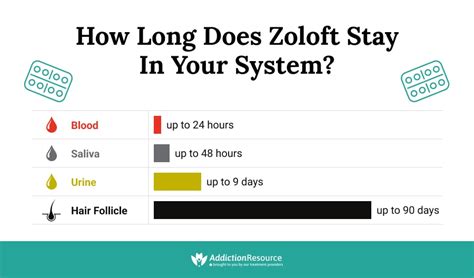How Long Does It Take for Zoloft to Work? A Comprehensive Guide
Many people suffering from depression, anxiety, or other mood disorders look to Zoloft (sertraline) for relief. But a common question arises: How long does it take for Zoloft to work? The answer isn't a simple one, as it varies greatly depending on the individual and their specific circumstances. This comprehensive guide will explore the timeline, factors influencing effectiveness, and what you can expect during the process.
Understanding Zoloft's Mechanism
Before diving into the timeframe, it's important to understand how Zoloft works. Zoloft is a selective serotonin reuptake inhibitor (SSRI). It works by increasing the levels of serotonin, a neurotransmitter in the brain that plays a crucial role in mood regulation. However, simply increasing serotonin levels doesn't instantly alleviate symptoms. The brain needs time to adjust to the increased serotonin, and this adjustment period is what accounts for the delay in noticing effects.
The Zoloft Timeframe: A Gradual Process
There's no magic number when it comes to how long Zoloft takes to work. It's a gradual process, and you're unlikely to feel a dramatic shift overnight. Here's a breakdown of the potential timeline:
Initial Weeks (1-4 Weeks): Initial Effects and Side Effects
During the first few weeks, you might experience some initial side effects, such as nausea, headache, drowsiness, or sexual dysfunction. These side effects are often temporary and subside as your body adjusts. While you may not notice significant mood improvements yet, some people report a slight lessening of anxiety or a boosted energy level during this phase. This is not the full therapeutic effect.
Weeks 4-8: Noticeable Improvements
For many individuals, noticeable improvements in mood and symptoms start appearing around weeks 4-8. This is when the therapeutic effects of the medication typically become more apparent. However, the improvement may be subtle at first, and it's important to be patient and consistent with your medication regimen.
Weeks 8-12: Full Therapeutic Effect
Reaching the full therapeutic effect usually takes 8-12 weeks. This means you've likely experienced the maximum benefit Zoloft can provide for your individual situation. If you haven't experienced significant improvement by this point, it's crucial to talk to your doctor. They may adjust your dosage, suggest a different medication, or explore other treatment options.
Factors Influencing Zoloft's Effectiveness
Several factors can influence how quickly and effectively Zoloft works:
-
Dosage: Your doctor will prescribe a dosage tailored to your individual needs. The correct dosage plays a vital role in achieving the desired results.
-
Severity of Symptoms: Individuals with more severe symptoms may require a longer time to experience significant improvement.
-
Individual Metabolism: How your body processes the medication influences its effects.
-
Co-occurring Conditions: Other medical or mental health conditions can impact the effectiveness of Zoloft.
-
Adherence to Treatment: Consistent medication intake as prescribed is essential for achieving optimal results.
What to Expect and When to Seek Help
Remember, patience is key. It's crucial to work closely with your doctor and communicate openly about your experience. If you experience any adverse side effects or haven't seen improvement after several weeks, don't hesitate to contact your healthcare provider. They may adjust your dosage or suggest alternative treatment options. Never stop taking Zoloft abruptly without consulting your doctor.
Conclusion: Time, Patience, and Professional Guidance
The timeline for Zoloft's effectiveness is unique to each individual. While many see improvements within 4-8 weeks, the full therapeutic effect can take up to 12 weeks. Open communication with your doctor, patience, and consistent adherence to the prescribed treatment plan are vital for achieving optimal results and managing your mental health effectively. Remember, seeking professional help is a sign of strength, and it's crucial for navigating the complexities of mental health treatment.
